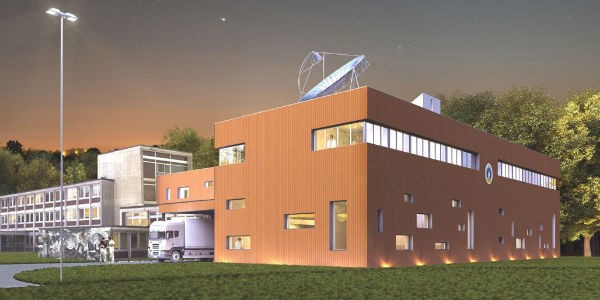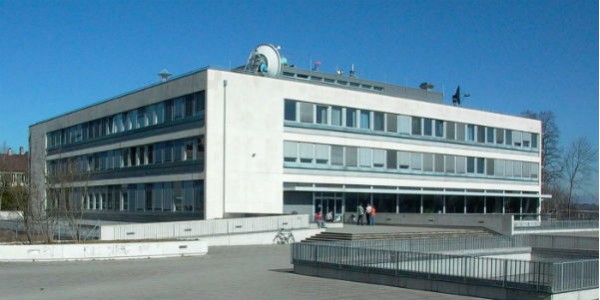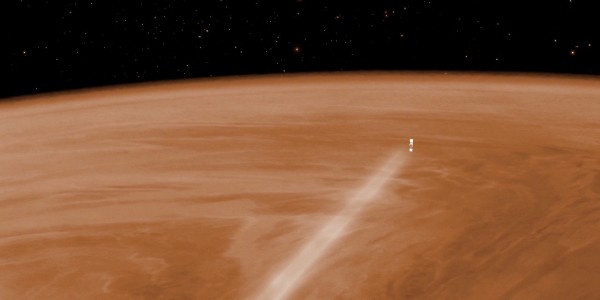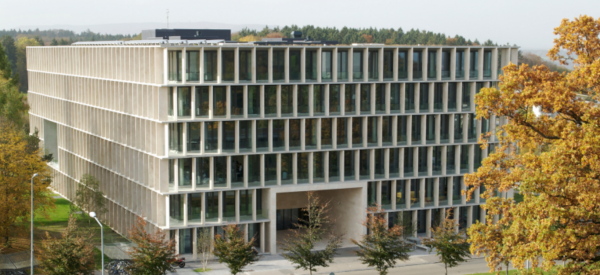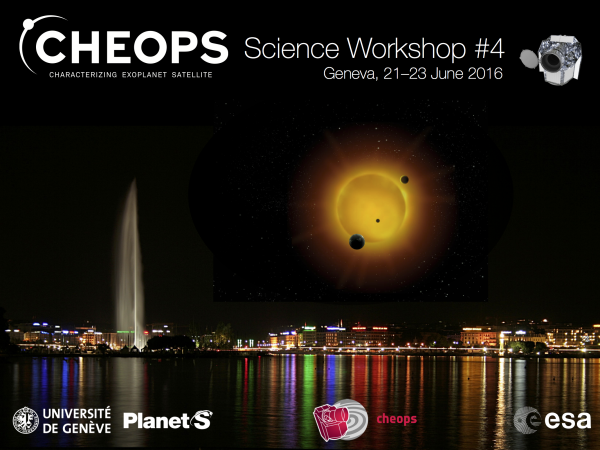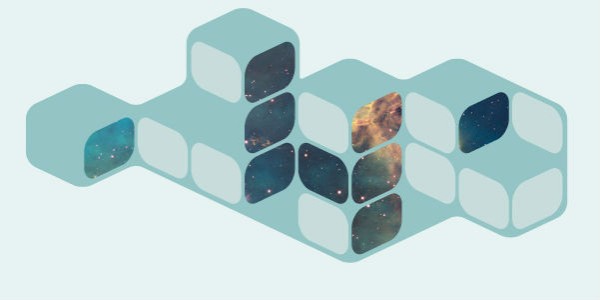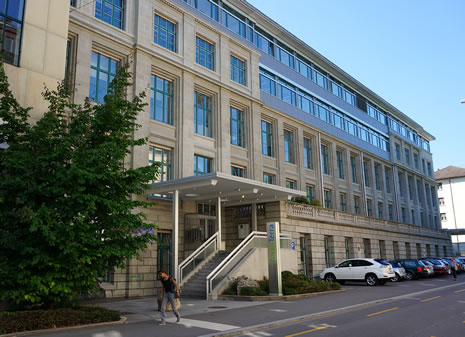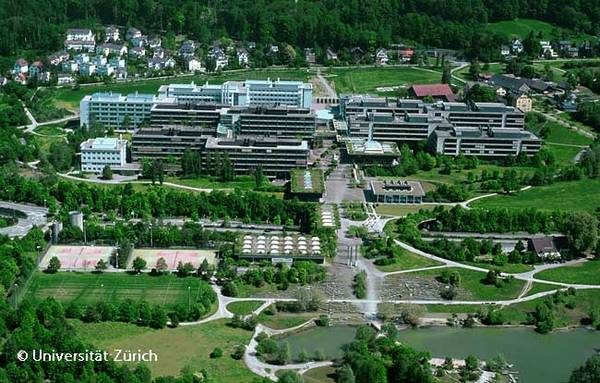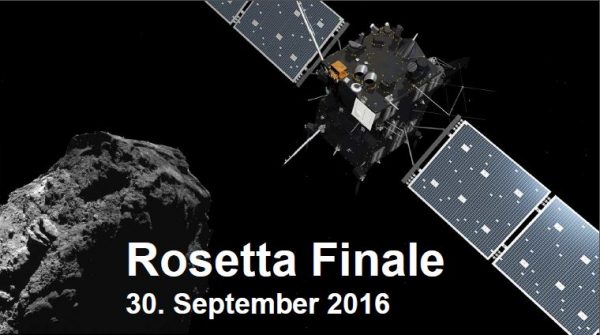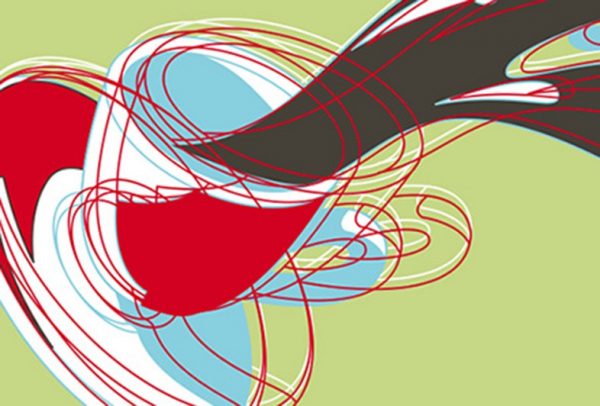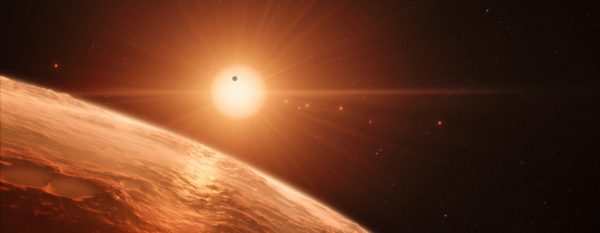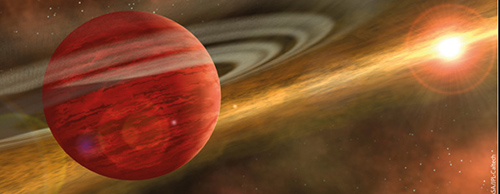
Events List Navigation
May 2016
SNF Site Visit 2
Geneva Observatory Chemin des Maillettes 51, 1290 Versoix Programme: You can find the programme of the second Site Visit below. The first day will be dedicated to achievements and science and the second day will deal with management aspects. All of you (in particular PhD students, postdocs and senior scientists) are supposed to be there on the first day, Tuesday 24 May. For the second day, Wednesday 25 May, only project/platform leaders, the programme office, and people from platforms have…
The Dynamical Evolution of Giant Planets and the Delivery of Atmophile Elements during Terrestrial Planet Formation
25.05.2016 Dr. Soko Matsumura, Division of Physics, Dundee, UK
June 2016
Venus Missions: Past, Present, Planned and Pretend
01.06.2016* Dr. David Grinspoon, Planetary Science Institute, Arizona, U.S.A.
Public Talk: “Listening to Venus” by Dr. David Grinspoon
Astrobiologist Dr. David Grinspoon will give a public talk on Venus, which includes a “live” performance of songs he wrote, on 3rd June 2016 (Friday) at UniS A003 from 18.00-19.00. Flyer
Circumplanetary Disk Workshop (PlanetS interproject meeting)
A workshop on Circumplanetary Disks and their role in the planet formation process (perhaps helping to shape the planet mass function). Agenda: 9:30-10:00 COFFEE 10:00-10:15: Michael Meyer Initial Conditions where Planets Form 10:15-10:30: Yann Alibert Planet Population Synthesis Models (CSD+CPD) 10:30-10:45: DISCUSSION 10:45-11:05: Christoph Mordasini Population Synthesis: Evolution and Structure of Planets 11:05-11:25: Ravit Helled Structure and Evolution Theory 11:25-12:00: DISCUSSION 12:00-13:30: LUNCH 13:30-13:50: Judit Szulagyi Hydro Simulations – Core Accretion CPDs 13:50-13:55: Lucio Mayer Hydro Simulations –…
Geophysical habitability of Earth-like planets
ETH Zürich Astronomy, 09.06.2016, 14:00, HIT J 43.1, Prof. Stephen J. Mojzsis, University of Colorado at Boulder, USA (http://isotope.colorado.edu/~mojzsis/) What makes an Earth-like planet geophysically habitable? The chemical makeup of a planet is as important to its habitable potential as its proximity to the “habitable zone”. Planetary elemental abundances govern mantle processes, and thus the nature of crust, atmosphere and hydrosphere. For example, without plate tectonics dictated by internal heat and mineral composition (translated into rheology), and liquid water, a sustained…
GFD Seminar by Eric Gaidos
How well do we really know the masses and radii of exoplanets? Eric Gaidos (Univ. of Hawaii at Manoa) ETHZ Zentrum, NO Building, E51.1, Sonnegstr.5, 8092 Zürich
CHEOPS Science Workshop
The CHaracterizing ExOPlanet Satellite (CHEOPS) will be dedicated to search for transits by means of ultrahigh precision photometry on bright stars already known to host planets. It is the first S-class mission from ESA. CHEOPS will have a nominal lifetime of 3.5 years, with launch-readiness targeted for end 2017. The purpose of this fourth CHEOPS science workshop is to bring together the community interested in the mission, providing information about its current status and preparing its scientific exploitation. A focus…
July 2016
Congress: Exoplanets I
The astronomical community is in an expansion phase of exoplanet science, especially with several American and European space missions (TESS, CHEOPS, PLATO, JWST) on the horizon (2017 to 2024). The new Exoplanets conference series aims to consolidate all aspects of exoplanet science and strike a balance between: Exoplanet theory, observations and instrumentation; Exoplanet discovery and atmospheric characterisation; Transiting and directly imaged exoplanets; Ground- and space-based surveys/missions; American and European participation. We aim to expand upon the “Planets” in the “Protostars…
September 2016
Seminar by Visiting Scholar Hilke Schlichting
“Crash, Boom, Bang: Impacts & the Formation of Planets at home and abroad” Prof. Hilke Schlichting 1.September 2016, 16.15, ETH Zentrum, NO C44
Visit/Session Prof. D. Stevenson
We are pleased to welcome Prof. David Stevenson from Caltech (https://www.gps.caltech.edu/content/david-j-dave-stevenson) for a Planet-Z meeting at UniZH on 20th September. Stevenson is a renowned planetary scientist who investigates planet formation and planetary interiors. In particular, he works on applying fluid mechanics and magnetohydrodynamics to understand the internal structure and evolution of planets and moons. Stevenson will give a talk in the morning of 20th September entitled: “Jupiter’s Core (and why you should care)”. Everyone involved in PlanetS is invited…
Rosetta Finale
Date Friday, September 30th 2016, 11:00 – ca. 13:10 Venue The meeting will take place in Meeting Room 099 at the ExakteWissenschaften(ExWi), Sidlerstrasse12 (refer to map) near the train station. [gview file=”http://nccr-planets.ch/wp-content/uploads/2016/09/2016-09-30-Event-Rosetta-Finale_A4.pdf”] Restaurant At 13:10 we will have a small meal at the Eingang UG A + EG, UniversitätBern, ExakteWissenschaften(ExWi), Sidlerstrasse12, 3012 Bern. Travel Bern is accessible from both Zurich and Geneva. Train tickets can be purchased at www.sbb.ch. Directions to Exakte Wissenschaften building (ExWi) Bern Tourism About On Friday, September 30,…
January 2017
Physik am Freitag: Ein neuer Planet im Sonnensystem? Planetenkandidat 9 und seine entfernten Verwandten
Ein neuer Planet im Sonnensystem? Planetenkandidat 9 und seine entfernten Verwandten Datum 20.01.2017 Zeit 16:30 Uhr Ort ExWi, 099 Dozent Christoph Mordasini http://www.unibe.ch/fak_naturwis/b_paw/a_fphyast/content/ueber_uns/aktuell/physik_am_freitag/index_ger.html
PlanetS General Assembly 3
The third General Assembly will again take place at the Hotel Sunstar in Grindelwald (BE) on January 23-25, 2017. Registration Important dates: 15.11.2016, Registration opens 14.12.2016, Registration closes 10.01.2017, Last changes can be made 23.01.2017, ~10:30 am, Start General Assembly 25.01.2017, ~4 pm, End General Assembly Please register with this Registration Form: >> Registration Form << Location- / Access plan Hotel Sunstar Grindelwald Dorfstrasse 168 3818 Grindelwald Switzerland P +41 33 854 77 77 grindelwald@sunstar.ch www.grindelwald.sunstar.ch Accomodation: The NCCR Office will cover accommodation expenses…
February 2017
Wissenschaftscafé Bern – Gibt es ausserirdisches Leben?
Orell Füssli Bücher im Loeb, 2. UG, Event Café Montag, 6. Februar 2017, 17.30–19.00 Uhr Wie wahrscheinlich ist ausserirdisches Leben? Wie definieren wir Leben überhaupt? Welche Möglichkeiten haben wir, dem Leben im All nachzuspüren? Wie muss ein Planet beschaffen sein, um Leben hervorzubringen? Wären die Erscheinungsformen der Ausserirdischen so wie in der Science Fiction beschrieben? Worin liegt die Faszination, sich fremde Welten auszudenken und herbeizusehnen? Welche Konsequenzen hätte die Entdeckung fremden Lebens? Prof. Dr. Dr. Claus Beisbart, Extraordinarius für Wissenschaftsphilosophie,…
Wissenschaftscafé Thun – Gibt es ausserirdisches Leben?
Orell Füssli Bücher, Bälliz 60, Thun Montag, 13. Februar 2017 17.15–18.15 Uhr Wie wahrscheinlich ist ausserirdisches Leben? Wie definieren wir Leben überhaupt? Welche Möglichkeiten haben wir, dem Leben im All nachzuspüren? Wie muss ein Planet beschaffen sein, um Leben hervorzubringen? Wä- ren die Erscheinungsformen der Ausserirdischen so wie in der Science Fiction beschrieben? Worin liegt die Faszination, sich fremde Welten auszudenken und herbeizusehnen? Welche Konsequenzen hätte die Entdeckung fremden Lebens? Prof. Dr. Dr. Claus Beisbart, Extraordinarius für Wissenschaftsphilosophie, Universität Bern…
March 2017
Terrestrial exoplanets around TRAPPIST-1
TRAPPIST-1 is a dwarf star only 40 lightyears away from Earth. Recently scientists announced the discovery of seven Earth-size planets around the star. On Thursday, 9 March 2017, scientists from the University of Bern will speak about the findings. And as a special guest SF writer Laurence Suhner will read her latest novel. The event is open to the public. On 22 February 2017, NASA announced the discovery of seven temperate Earth-size planets around the nearby ultracool dwarf star TRAPPIST-1.…
Extrasolar Planets: A Laboratory to Confront the Theory of a Planet Formation with Observations
Before the discovery of the first extrasolar planet about 20 years ago it was thought that the global structure of the Solar System is not a coincidence, but rather a necessary consequence of the physics of the planetary formation process. Theoreticians therefore also predicted that planetary systems around other stars should be similar to our system at large. Observations have proven otherwise: with the counter of known extrasolar planets now at 3000, there is one word that describes them best:…
Registration for champions ideas
The SwissCompanyMaker workshop Geneva 2017 is launching a call for applications to all idea champions. The workshop specifically targets very early to early high-technology entrepreneurial ideas from all fields and from all over Switzerland. Over a condensed two-and-a-half-day, the workshop prepares participants for the entry into the existing Swiss start-up promotion ecosystem. Individuals or teams can submit an application form with no admission fees. The workshop is free of charge for all accepted idea teams. The high-technology business idea may…
Workshop: Exoplanets in Binary Stars
Dear all, you are invited to a 1-day NCCR PlanetS workshop on Exoplanets in Binary Stars this March in Bern! In short: → What: NCCR PlanetS workshop “Exoplanets in Binary Stars” → When: March 27 → Where: University of Bern, Seminar Room 205, Hallerstrasse 6, 3012 Bern Schedule: 9:00 registration/coffee 9:30 Welcome/Announcements Sebastian Daemgen (ETHZ) 9:40 Circumbinary planets & disks Willy Kley (Tübingen) 10:10 Close-in circumbinary & circumstellar planets David Martin (Geneva) 10:40 Rotation of planets around binary…

